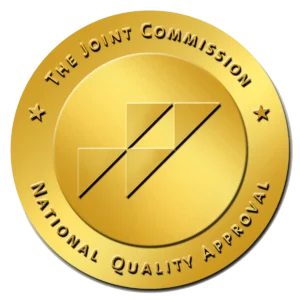Scientific studies have begun to identify genes that can contribute to mental health disorders or protect against them. Research is still ongoing, but this valuable information may one day lead to improved treatments and preventative practices for a range of mental illnesses. At The Pavilion, in Williamsburg, Virginia, we treat several mental health conditions that can run in families, and we are always looking for new ways to help our patients and their loved ones.
What Scientists Already Know
An international team of researchers has analyzed thousands of DNA samples and discovered some tiny variations that are associated with specific mental health disorders:
- Schizophrenia
- Bipolar disorder
- Depression
- Attention deficit hyperactivity disorder (ADHD)
Some of the genetic variants that scientists identified with these conditions are involved in how our brains handle the chemicals that regulate emotion, thought, attention, and memory. Further research may increase our ability to address these genetic differences in a way that reduces mental illness in the future.
The Good News
Having a parent or sibling with schizophrenia, depression, attention deficit hyperactivity disorder (ADHD) or bipolar disorder can increase your chances of having those same genes, but the genes are considered to be weak risk factors for the diseases. Having those genes just means that you are somewhat more likely than the general population to develop the condition.
Even if you have the genetic variant in question, scientists do not believe that these disorders are solely caused by genetics. They are usually triggered by a combination of genetics, life experiences, and environmental factors.
Factors We Can Influence
Even though we don’t have the power (yet) to control our genetics, it may be possible to decrease the chances of a person developing one of these mental illnesses through other means:
- Reducing how much trauma a person experiences
- Ensuring they receive therapy and support for trauma they do experience
- Teaching them stress management techniques
- Preventing brain injuries
- Finding rapid, effective treatments for infections that can contribute to mental illnesses
- Ensuring quality prenatal care for expectant mothers
- Preventing and treating substance use disorders
Genetic Counseling for Mental Health Conditions
If you or a close blood relative has a mental health disorder that has been found to have a genetic component, you might find it helpful to talk to a genetic counselor about the chances of the gene being passed on to your offspring. An appointment with a genetic counselor would involve discussing your personal and family health history and completing an appropriate type of genetic testing to determine the likelihood of the gene being passed on.
Remember: the likelihood of the gene being passed on is not the same thing as predicting the likelihood of the condition actually developing. Science is still not able to accurately test the risk of someone developing a mental health disorder.
Gathering a Family Mental Health History
Even if you do not choose to pursue genetic counseling, it is a good idea to know your family’s medical and mental health history, as this can help you to maintain your own health. Knowing what conditions your blood relatives have had and what treatments were most and least effective for them can be beneficial in your own treatment, should you develop the same disorder. It may also help you to avoid the disorder in some cases. An example of this would be avoiding marijuana if you have a family history of schizophrenia, since marijuana use has been found to trigger psychosis in people with a family history of schizophrenia.
You can learn about your family’s medical history by talking to your relatives about their diagnoses and recording what you find. Free online tools can help you track what you learn. The closer blood relationship you have with someone, the more DNA you share, and the more likely you are to have similar genetic variants. This means that the health information from your first-degree relatives, which include parents, siblings and children, is more helpful than information from second-degree relatives, like nieces, nephews, cousins, half-siblings, grandparents, aunts and uncles.
At The Pavilion, we provide inpatient and outpatient care for adults and seniors who are experiencing psychiatric symptoms. Our individualized treatment plans take a holistic, trauma-informed approach to mental health treatment, which includes family participation whenever possible.






